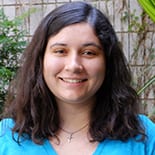
Characterizing the diversity of NFR5 in Glycine subgenus Glycine
Project Summary
Polyploidy, or whole genome duplication, is a widespread phenomenon in plants and has occurred at the base of seed plant and angiosperm lineages. Allopolyploidy combines the effects of both hybridity and whole genome duplication. Allopolyploidy can lead to novelty in several ways, including altered gene expression and expression of gene copies from both parental species. This can lead to novelty in ecological interactions. This project focuses on natural allopolyploids and their diploid progenitors inGlycine subgenus Glycine. As with other legumes, they have the potential to nodulate, or form symbiotic interactions with nitrogen-fixing bacteria, known as rhizobia. Nod factor receptors allow legumes to perceive compatible signals from rhizobia. This project set out to examine the hypothesis that allopolyploids could increase their range of symbiotic interactions by expressing differentiatedNod factor receptor (NFR) genes from the diploid progenitors. Preliminary expression data suggests that allopolyploids are able to express both NFR genes from the diploid progenitors. NFR genes from the diploid progenitor species were amplified by PCR and sequenced via the Sanger method. DnaSP and TCS networks were used to characterize the diversity of, and relationships between, NFR genes of the diploid species. Results indicate that there is greater diversity between the diploid species in the LysM region of NFR5, which is responsible for interaction with bacterial symbiont signals, compared to other regions of NFR5. This suggests diversification among the diploids in response to symbiotic signals, which supports the possibility that allopolyploids can combine diverse progenitor genes to increase their range of symbiotic partners.
My Experience
This summer has made me a more confident scientist. I have worked in plant biology labs before, but this was the first time that I had my own research project. I have a much better idea of how to conduct research. I now feel comfortable working independently, and I know I can come up with creative solutions to research problems. This summer has also affirmed my desire to go to graduate school.
